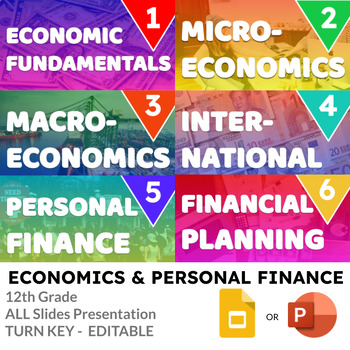In today’s fast-paced and ever-changing world, managing one’s finances effectively is crucial for achieving financial stability and security. Econ personal finance, a subset of economics, deals with the application of economic principles to personal financial decisions. It involves understanding how to allocate resources, manage risk, and make informed decisions about investments, savings, and spending. In this article, we will delve into the world of econ personal finance, exploring its key concepts, principles, and best practices.

Understanding Econ Personal Finance
Econ personal finance is an interdisciplinary field that combines economics, finance, and psychology to help individuals make informed decisions about their financial resources. It involves analyzing the trade-offs between different financial choices, such as saving versus spending, investing in stocks versus bonds, and choosing between different types of insurance. By applying economic principles, individuals can optimize their financial decisions, minimize risk, and maximize their overall well-being.
Key Concepts in Econ Personal Finance
Several key concepts are essential to understanding econ personal finance. These include:
- Opportunity Cost: The value of the next best alternative that is given up when a choice is made. For example, if an individual chooses to spend $1,000 on a vacation, the opportunity cost is the interest that could have been earned if the money had been invested instead.
- Time Value of Money: The idea that a dollar today is worth more than a dollar in the future, due to the potential for earning interest or returns on investment.
- Risk and Return: The trade-off between the potential for higher returns and the risk of losses. For example, investing in stocks may offer higher potential returns, but also comes with a higher risk of losses.
- Diversification: The strategy of spreading investments across different asset classes to minimize risk.
- Compound Interest: The concept of earning interest on both the principal amount and any accrued interest over time.
Principles of Econ Personal Finance
Several principles are essential to effective econ personal finance. These include:
- Budgeting: Creating a plan for how to allocate income towards different expenses, savings, and investments.
- Saving: Setting aside a portion of income for short-term and long-term goals, such as emergencies, retirement, and major purchases.
- Investing: Using savings to earn returns through investments, such as stocks, bonds, and real estate.
- Debt Management: Managing debt, such as credit cards and loans, to minimize interest payments and avoid default.
- Insurance: Protecting against unexpected events, such as illness, injury, or death, through insurance policies.
Best Practices in Econ Personal Finance
Several best practices can help individuals achieve financial stability and security. These include:
- Creating a Budget: Tracking income and expenses to understand where money is going and making adjustments as needed.
- Building an Emergency Fund: Setting aside 3-6 months’ worth of living expenses in a easily accessible savings account.
- Investing for the Long-Term: Using tax-advantaged accounts, such as 401(k) or IRA, to invest for retirement and other long-term goals.
- Paying Off High-Interest Debt: Focusing on paying off high-interest debt, such as credit cards, as quickly as possible.
- Monitoring Credit Reports: Regularly checking credit reports to ensure accuracy and detect potential identity theft.
Common Mistakes in Econ Personal Finance
Several common mistakes can derail even the best-laid financial plans. These include:
- Not Creating a Budget: Failing to track income and expenses, leading to overspending and debt.
- Not Saving Enough: Failing to set aside enough for short-term and long-term goals, leading to financial insecurity.
- Investing Without a Plan: Investing without a clear understanding of risk and return, leading to potential losses.
- Not Managing Debt: Failing to pay off high-interest debt, leading to accumulating interest payments and debt.
- Not Reviewing Insurance Coverage: Failing to review insurance coverage, leading to potential gaps in protection.
Frequently Asked Questions (FAQs)
- What is the best way to create a budget?
The best way to create a budget is to track income and expenses over a month, then categorize expenses into needs (housing, food, transportation) and wants (entertainment, hobbies). Make adjustments as needed to ensure alignment with financial goals. - How much should I save for emergencies?
It’s recommended to save 3-6 months’ worth of living expenses in a easily accessible savings account. - What is the best way to invest for the long-term?
The best way to invest for the long-term is to use tax-advantaged accounts, such as 401(k) or IRA, and to diversify investments across different asset classes. - How can I pay off high-interest debt?
The best way to pay off high-interest debt is to focus on paying off the debt with the highest interest rate first, while making minimum payments on other debts. - Why is it important to review insurance coverage?
Reviewing insurance coverage is important to ensure that there are no gaps in protection and to avoid over-insuring or under-insuring.
Conclusion
Econ personal finance is a critical aspect of achieving financial stability and security. By understanding key concepts, principles, and best practices, individuals can make informed decisions about their financial resources and optimize their financial well-being. By avoiding common mistakes and following best practices, individuals can create a solid foundation for long-term financial success. Remember, econ personal finance is a lifelong process that requires ongoing education, planning, and discipline. By taking control of your finances, you can achieve your goals and secure a brighter financial future.
Closure
Thus, we hope this article has provided valuable insights into The Importance of Econ Personal Finance: A Comprehensive Guide. We thank you for taking the time to read this article. See you in our next article!